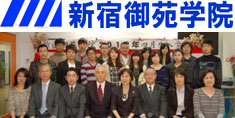President Xi Jinping once said with deep affection: "I worked in Fuzhou for six to seven years and spent the best years of my life here." At the time, Xi pointed out that: Building a place without a long-term plan often leads to serious missteps and even lasting regrets. As Fuzhou prepared to step boldly into the new century, it first needed a forward-looking, science-based, and realistic long-term strategic vision.
In this context, Xi personally led the development of the "Fuzhou 20-Year Economic and Social Development Strategic Vision," which outlined a three-phase strategy beginning in 1992, with three-year, eight-year, and 20-year goals, to build Fuzhou into a "modern socialist international city." This became known as the "3820" strategic project, which set the direction for Fuzhou's development.
The "3820" strategic project has four distinctive features:
First, from the starting point, it emphasized considering the broader context to serve local development. Xi adhered to the principle of looking beyond one area to plan for overall development, focusing on the 21st century, cross-Strait exchanges, and all-round development. Xi's plan called for setting goals in three steps: In three years, Fuzhou would achieve significant economic progress; in eight years, match Fuzhou's urban and rural indicators with those of China's advanced cities; and in 20 years, approach or reach the average development level of moderately developed Asian countries and regions. The end goal was to move Fuzhou from the back of the bus to the front.
Second, in terms of policymaking, Xi followed a spirit of thorough planning and pragmatism. A survey was published in Fuzhou Evening News, with hundreds of thousands of citizens participating. Over 1,000 government workers from districts, counties, and municipal departments took part in research. More than 100 experts, scholars, and front-line workers conducted validations. The process took six months and 10 drafts, with everyone involved in it respecting objective realities and rigorously adhering to economic principles. This has ensured the effectiveness of the "3820" strategic project.
Third, in terms of content, it balanced tradition and innovation to propose groundbreaking measures. The project pioneered numerous initiatives, achieving many remarkable accomplishments, deployments and breakthroughs. These included proposing concepts like "Fuzhou at Sea," "Mountain-Sea Coordination," and the "Golden Triangle Economic Circle at Minjiang Estuary." It also launched the first International Investment Promotion Month, and created three development zone models: government-operated, overseas-Chinese-operated, and privately operated. It also planned the construction of Changle International Airport.
Fourth, in terms of planning and implementation, it emphasized continuity from one administration to the next. The realization of the project's goals relied on a work ethic known as "immediate action and pragmatic implementation," and a spirit of perseverance. During this process, Fuzhou introduced innovative practices like one-stop government services, first-inquiry accountability, time-bound task completion, grassroots field research, and addressing key public concerns.
The 20 years of implementing the "3820" strategic project saw Fuzhou achieving its fastest growth in terms of comprehensive strength, most dramatic urban-rural transformation, and securing the greatest benefit for its people. Through sustained efforts, Fuzhou's GDP has grown from 10 billion yuan to 1.29 trillion yuan, transforming from a small backwater town into a happy, livable city. It has been transformed into a modernized coastal hub. In 2023, Fuzhou was one of the five to receive the inaugural Global Award for Sustainable Development in Cities by the UN-Habitat.
The "3820" strategic project has left us with a valuable legacy and intellectual treasure. Fuzhou explains this legacy from 10 perspectives: Ensure effective strategic planning for now and in the future; Deeply understand the CPC Central Committee's strategies; Consider the broader picture in local development; Adopt a correct view of political achievements; Conduct thorough research and evaluations; Be problem-oriented; Be bold in innovation; Introduce practical reforms and innovations; Adhere to a long-term blueprint; Maintain steadfast implementation for long-term success.
Author: Li Yuju, vice director of the Xi Jinping Thought on Economy Study Center
- 新漫评:为什么我的作业得了“C2022-03-17
- 日本强震列车脱轨、核电站响火灾2022-03-17
- 法国取消大部分防疫限制措施展开2022-03-15
- 东西问丨朱诚如:“康乾盛世”时2022-03-15
- 东西问丨卢载宪:韩中建交步入“2022-03-15









